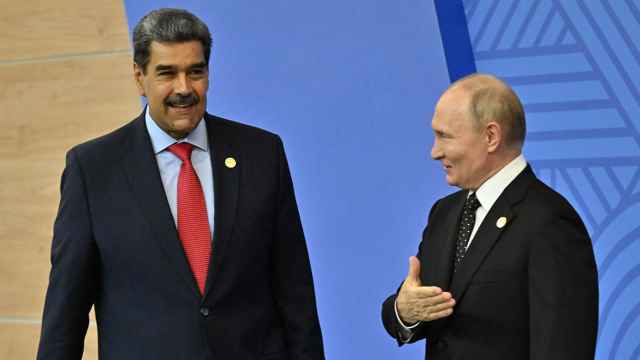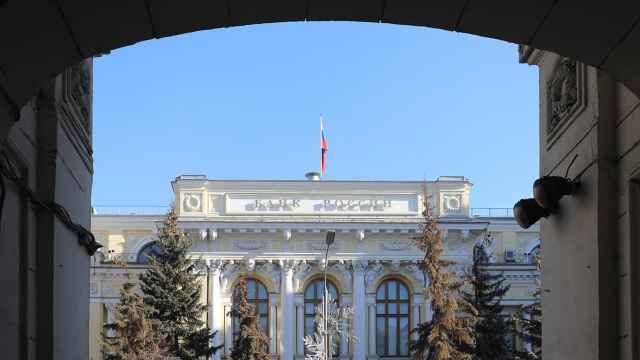During his annual press conference on Thursday, President Vladimir Putin said he had never met former National Security Agency contractor Edward Snowden but expressed curiosity about his life, calling the U.S. leaker an "interesting person."
Putin mentioned his own background as an intelligence officer — he served with the Soviet KGB and later as head of the Federal Security Service in the 1990s — in describing his opinion of Snowden, saying it was a "noble but a difficult choice" to leak secret documents describing U.S. surveillance efforts around the world.
"I have never met him. He is an interesting person, but he has his own business to do and I have my own," Putin said.
"He is a rather young man. What does he have? He has nothing, so how is he going to live? Where is he going to live?"
Putin denied widespread speculation that Snowden has been working with Russian intelligence agencies since arriving in the country this summer. Snowden's Russian lawyer said earlier this year that the 30-year-old had received a job working for an unidentified Russian website.
"Operationally, we are not working with him and never have. We do not bother him with questions about what activity his agency led in regard to Russia," Putin said.
He noted that Snowden, who is currently living in Russia after having received asylum earlier this year, had "turned the heads of millions of people, including top political figures around the world."
The governments of countries including Germany and Brazil expressed outrage to find out from the Snowden leaks that the U.S. had tapped communications of officials all the way up to German Chancellor Angela Merkel and Brazilian President Dilma Rousseff.
Earlier this week, Snowden wrote an open letter to "the people of Brazil" volunteering to help investigate U.S. spying efforts in that country and said he would need to receive asylum there to do so. The Brazilian foreign ministry said it did not plan to respond to the letter, however.
Putin said Russian authorities were not helping Snowden and had only given him asylum on the condition that he would not carry out work while in Russia that would harm the U.S.
Asked about how the granting of asylum to Snowden had affected U.S.-Russia relations, Putin mostly evaded the question, saying only that he was "jealous" that Obama could afford to organize such large-scale spying activities, especially of foreign leaders.
"I envy Obama because he can do that, and there will be no consequences for him," Putin said.
U.S. authorities, who have issued an arrest warrant for Snowden on charges of espionage, had asked Russia not to give him asylum. The decision to give Snowden a Russian visa added tension to U.S.-Russia relations, leading to Obama's refusal to come to Moscow for a previously planned bilateral meeting with Putin in September.
Putin said he would like to see rules and agreements created, including "rules of morality," as such large-scale spying activities were leading to negative consequences for political relations.
But he added that NSA intelligence activity was "necessary," as it was a part of counter-terrorism operations.
"I am not going to justify anyone … but it would be fair to say that it was done first and foremost to fight with terrorism — it is counter-terrorism measures," he said, noting that such measures were made necessary by the difficulty of tracing terrorist links.
Contact the author at [email protected]
A Message from The Moscow Times:
Dear readers,
We are facing unprecedented challenges. Russia's Prosecutor General's Office has designated The Moscow Times as an "undesirable" organization, criminalizing our work and putting our staff at risk of prosecution. This follows our earlier unjust labeling as a "foreign agent."
These actions are direct attempts to silence independent journalism in Russia. The authorities claim our work "discredits the decisions of the Russian leadership." We see things differently: we strive to provide accurate, unbiased reporting on Russia.
We, the journalists of The Moscow Times, refuse to be silenced. But to continue our work, we need your help.
Your support, no matter how small, makes a world of difference. If you can, please support us monthly starting from just $2. It's quick to set up, and every contribution makes a significant impact.
By supporting The Moscow Times, you're defending open, independent journalism in the face of repression. Thank you for standing with us.
Remind me later.





